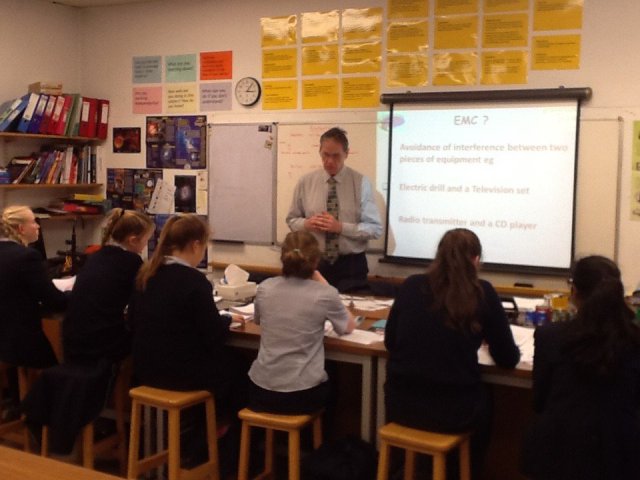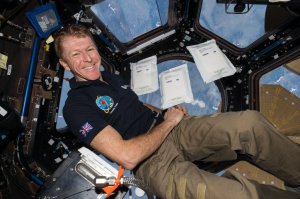On Thursday, February 11, 2016, at approximately 18:11 UT, an ARISS contact is planned for the Royal Masonic School for Girls, Rickmansworth,, United Kingdom. The contact between Tim Peake GB1SS and GB1RMS will be receivable in the British Isles and Europe on 145.800 MHz FM and will be streamed live on the web.
The Royal Masonic School for Girls is an independent girl’s day and boarding school in Rickmansworth, Hertfordshire, with an exceptional, unusual and distinguished history. Founded in 1788 with the purpose of educating the daughters of Freemasons who were unable to support their families, it is one of the oldest girls’ schools in the country. We attract girls aged 4-18 from across Hertfordshire, Buckinghamshire and North London and boarders from all over the world. We also have a Pre School for boys and girls aged 2 to 4. Our ethos is both aspirational and nurturing and our girls strive to be the very best they can be, academically, morally and creatively. Our public examination results are consistently impressive and each year around 90% of girls leave RMS to take up places at University. Life at RMS is centred on much more than “just” academic success and the School is well known for its exceptional pastoral care, and the wealth of extra-curricular opportunities it offers – including Astronomy as we are one of very few schools in the UK to have our own planetarium and observatory!
This contact will be webcast on the ARISS Principia website.
Students will ask as many of the following questions as time allows.
1. Jana (Year 6): If you have hiccups in space do you bounce around?
2. Eva (Year 7): I watched your video on water and why it turned into a sphere. Would you get the same reaction with a fizzy drink like lemonade?
3. Isabella (Year 3): I’m 7 years old – when I am your age, what do you think space travel will look like?
4. Rosa and Millie (Year 9): We have heard you had to breathe o2 before your brilliant spacewalk. Are there any precautions you had to take after returning inside the ISS?
5. Saira (Year 9): What was the first word that came into your head when you saw the Earth from Space?
6. Amelia (Year 8): What was the hardest thing to adjust to when you arrived at the ISS?
7. Elizabeth (Year 8): Which of your muscles has been affected the most by the zero gravity?
8. Jasmine (Year 8): Who was your biggest inspiration to travel into space?
9. Tallulah (Year 9): How is being an astronaut different from being an aquanaut, apart from the sea and the air?
10. Kitty (Year 9): What is the best advice that you have been given and wish to pass on to future astronauts before travelling to the ISS??
11. Yasmin (Year 9): Your blog says that you are doing research into new space age metals using a levitation furnace. Why is zero gravity better for this type of experiment?
12. Miranda (Year 8): Aside from plants, how do you produce oxygen on the ISS?
13. Tallulah (Year 10): What is the difference between flying a helicopter and being in a rocket going to the ISS?
14. Aaliya (Year 10): Did your training prepare you for the actual experience of space jet lag given you have said you adjusted so quickly?
15. Evie (Year 8): How is the ISS helping us deal with the challenges of deep space voyages?
16. Laura (Year 12): Is there an ‘up’ on the space station when conducting a spacewalk for navigational /orientating purposes?
17. Sophie (Year 3): What is your favourite experiment that you have carried out in space, and why?
18. Jane (Year 8): What has been the most surprising everyday object on the ISS that you did not expect to find?
19. Diana (Year 10): How often do you see Solar wind?
20. Evie (Year 8): When Chris Hadfield recently visited us he said your guitar skills were good but needed more practice Do you have time to practice the guitar in space?
ARISS offers an opportunity for students to experience the excitement of Amateur Radio by talking directly with crew members onboard the International Space Station. Teachers, parents and communities see, first hand, how Amateur Radio and crewmembers on ISS can energize youngsters’ interest in science, technology and learning.
73 Gaston Bertels, ON4WF
ARISS mentor
ARISS Principia site https://principia.ariss.org/
Listen online to Tim Peake’s radio transmission on 145.800 MHz FM at http://websdr.suws.org.uk/
Listening to the ISS on a handheld radio http://amsat-uk.org/2016/01/10/listening-iss-on-handheld/
What is Amateur Radio? http://www.essexham.co.uk/what-is-amateur-radio
Find an amateur radio training course near you https://thersgb.org/services/coursefinder/
A free booklet is available aimed at introducing newcomers to the hobby that can also be used as a handy reference while getting started, see
http://rsgb.org/main/get-started-in-amateur-radio/alex-discovers-amateur-radio-2/
![]()

